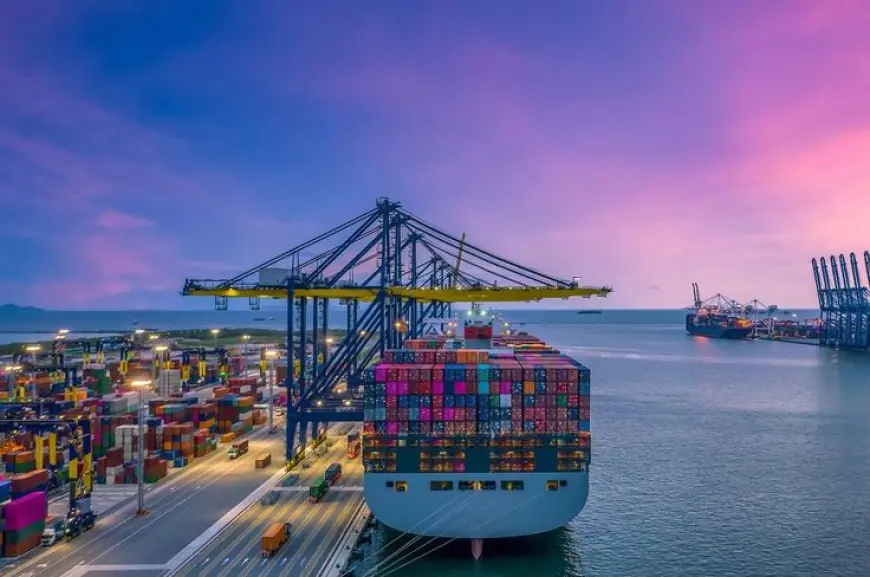How Fleet Logistics Support Transforms Modern Operations
Fleet Logistics Support is revolutionizing how organizations manage transportation, supply chains, and field operations.

In today’s fast-moving global landscape, efficient logistics has become the cornerstone of operational success. From defense forces to multinational corporations, managing the movement, maintenance, and coordination of fleets is critical to achieving both tactical and strategic goals. One powerful enabler in this space is Fleet Logistics Support. But how can fleet logistics support improve operations? The answer lies in its ability to integrate technology, streamline processes, and deliver real-time insights that empower organizations to do more with less—efficiently and reliably.
Understanding Fleet Logistics Support
At its core, Fleet Logistics Support refers to the systems, services, and strategies that ensure the effective and efficient movement, maintenance, and deployment of a fleet—whether that fleet consists of naval vessels, ground transport vehicles, air assets, or a combination. It encompasses everything from fuel management and supply chain coordination to predictive maintenance and route optimization.
This backbone of operational logistics is no longer limited to the military or large-scale industrial operations. Today, companies in transport, construction, emergency services, and public infrastructure are leveraging fleet logistics to stay agile, efficient, and ahead of the curve.
1. Enhanced Operational Efficiency
One of the most significant benefits of fleet logistics support is its impact on operational efficiency. Through centralized coordination and real-time tracking, organizations can reduce downtime, avoid scheduling conflicts, and improve asset utilization. Fleet logistics software integrates GPS, telematics, and inventory systems to ensure the right vehicle or vessel is deployed at the right time with the right resources.
Example:
A delivery service can optimize its vehicle routes based on traffic, fuel efficiency, and package priority using fleet logistics software, reducing delivery times and fuel consumption simultaneously.
2. Improved Maintenance and Reduced Downtime
Proactive and predictive maintenance are key components of modern fleet logistics. Rather than reacting to breakdowns, fleet management systems monitor vehicle health, schedule regular inspections, and alert managers to potential issues before they become critical.
This approach minimizes operational disruptions and extends the lifespan of valuable assets. In the defense sector, for example, aircraft or naval vessels are maintained with precision to ensure readiness for mission-critical operations without unscheduled delays.
3. Cost Optimization and Budget Control
Fleet logistics support provides powerful insights into cost drivers, such as fuel usage, maintenance expenses, driver behavior, and idle time. With this data in hand, organizations can make informed decisions to reduce unnecessary spending, negotiate better supplier contracts, and invest in cost-saving technologies like electric or hybrid vehicles.
For private companies operating large transport fleets, these insights can directly impact bottom-line profitability. For public agencies, they translate into more efficient use of taxpayer funds.
4. Supply Chain Synergy and Real-Time Coordination
Fleet logistics plays a crucial role in harmonizing the supply chain. It enables seamless coordination between warehouses, suppliers, transport fleets, and customers. Real-time data sharing ensures that inventory levels, shipment statuses, and delivery schedules are always up-to-date and accurate.
This visibility minimizes stockouts, delays, and miscommunications. For example, a manufacturing plant can schedule just-in-time deliveries of critical parts, reducing storage costs and production halts.
5. Scalability and Flexibility
Whether your organization is growing or adapting to seasonal demand changes, fleet logistics support systems are designed to scale. Cloud-based platforms allow for the easy integration of new vehicles, staff, and locations. Fleet managers can monitor activities from a single dashboard, regardless of scale or geography.
This flexibility also supports agile responses to emergencies, disruptions, or shifts in business strategy—crucial for industries like healthcare, disaster relief, or military operations.
6. Data-Driven Decision Making
Today’s fleet logistics is built on data. From vehicle diagnostics to driver behavior analytics, logistics platforms collect and analyze vast amounts of information. This data empowers managers to make smarter decisions around fuel efficiency, driver training, asset procurement, and route optimization.
Moreover, historical data can reveal trends that help in forecasting future demand, identifying inefficiencies, or justifying capital investment.
7. Enhanced Safety and Compliance
Safety is a non-negotiable priority in fleet operations. Fleet logistics systems ensure compliance with safety regulations by automating documentation, monitoring driver behavior (speeding, harsh braking, etc.), and managing mandatory checks.
This not only protects assets and personnel but also shields organizations from costly fines or legal liabilities.
8. Environmental Responsibility
Sustainability is no longer optional. Fleet logistics support contributes to greener operations by promoting fuel-efficient routing, reducing idle times, and enabling the transition to electric or hybrid vehicles. With growing regulations and consumer demand for environmental stewardship, efficient logistics helps companies meet their sustainability goals while maintaining performance.
Conclusion: The Road Ahead
Fleet Logistics Support is not just about moving vehicles—it’s about moving entire operations forward. From enhancing productivity and reducing costs to enabling smarter decisions and supporting sustainability, its role in modern operations is both transformative and indispensable.
Organizations that embrace advanced fleet logistics support systems gain a strategic edge—one that enables them to be agile in disruption, lean in efficiency, and strong in execution.
Whether you're managing a government agency, a logistics company, or a corporate fleet, investing in fleet logistics is no longer a competitive advantage—it's a business necessity.
What's Your Reaction?
 Like
0
Like
0
 Dislike
0
Dislike
0
 Love
0
Love
0
 Funny
0
Funny
0
 Angry
0
Angry
0
 Sad
0
Sad
0
 Wow
0
Wow
0


















































